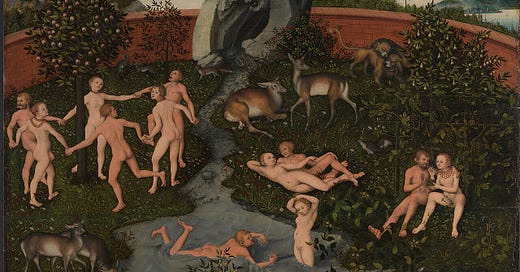Originally published on New Lyre
All paid subscribers get access to not only all Age of Muses content and archives, but also full access to New Lyre, our innovative new voice journal of art and letters.
Utopian literature is ubiquitous enough to constitute its own sub-genre of fiction – and to contain its own spinoff subcategory of dystopian literature. The term “utopia” comes from the title of St. Thomas More’s utopian work and derives from the Greek οὐ τόπος, or “not a place.” That is, utopias are thought-experiments, products of conjecture to illustrate an ideal as though it were embodied in reality. Dystopias, from δυσ τόπος, or “bad place,” is an anti-utopia, equally imaginary, but instead envisioning an embodiment of evil, usually to advocate for its opposite ideal.
Plato is considered among the first utopian thinkers based on the ideal city he describes in the Republic, and among twentieth-century dystopias the world of Aldous …
Keep reading with a 7-day free trial
Subscribe to Age of Muses to keep reading this post and get 7 days of free access to the full post archives.




